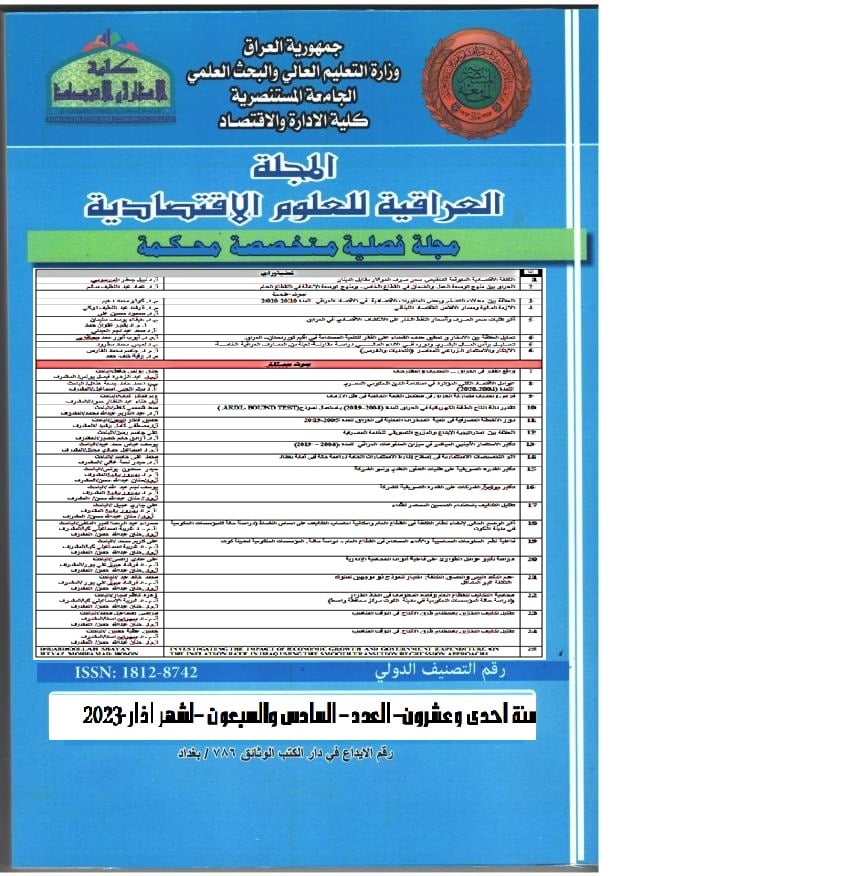The Reality Of Poverty In Iraq... Challenges And Proposals
Keywords:
Poverty - IraqAbstract
Poverty cast a shadow over the various aspects of economic, social, health, and environmental life in Iraq, where the political and security conditions led to the deterioration of the economic structure and the decline in growth rates, which increased the rates of poverty and unemployment together, which are two interrelated phenomena, as the increase in unemployment rates necessarily leads to a widening of the circle of poverty, and from Here stems the importance of our study, which focuses on analyzing this relationship, highlighting its economic and social consequences, and proposing realistic remedies to overcome it.
Poverty is considered (paradoxical) in a country that possesses enormous natural and human potentials, whose society is unable to invest them to provide the limits of safe living for its members collectively. Therefore, the research hypothesis was derived from this vision. The importance comes from the researchers' preoccupation with answering this question. Efforts and faltering endeavors to deal with the issue of (scarcity) and to provide conditions for productive work, on whose results depend on the treatment of the phenomenon of poverty in its various dimensions, deprivation, lack of empowerment, and disruption of resources.
From here, the objectives of the research were determined by diagnosing the contents of poverty and identifying weaknesses in the policies used to deal with it and then describing the strategies necessary to overcome the difficulty of reducing it in preparation for its eradication. The most important conclusions of the study are:
The synchronization between the development of the phenomenon of unemployment in the Iraqi economy and the increase in poverty rates, in addition to the exacerbation of the multidimensional problem of unemployment in Iraqi society, which is represented by material destitution and deprivation of necessary services such as education, health, and municipal services, as well as the prevalence of the phenomenon of "digital illiteracy", and to get rid of the consequences of this problem it is necessary to change Radical patterns of managing resources and doubling the intensity of work and investment rates for the available ones.






